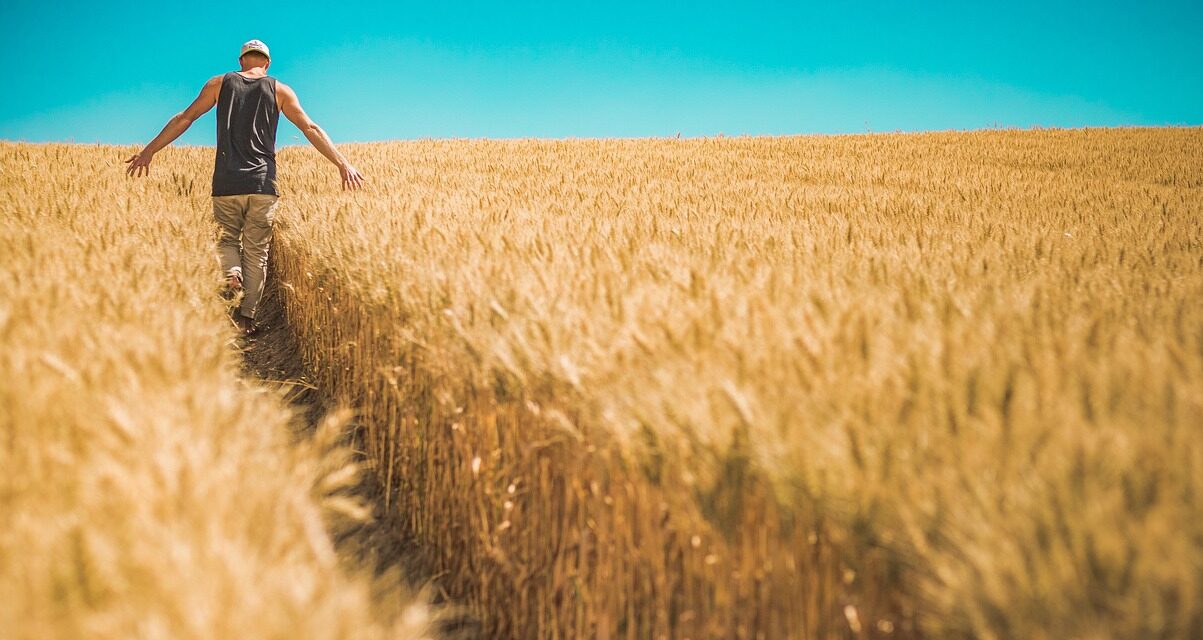What they wanted to save until now has all been destroyed. Couldn't it be that they want to save something else, the Earth?
Earth and environmental protection have never received as much attention from humanity as they have in recent months. Slowly everyone feels that something must be done. "Western, civilized" societies, of course. And that makes me totally doubt it. Because what they wanted to save until now has all been destroyed. Couldn't it be that they want to save something else, the Earth? What if we could simply be your hosts, like in the past?
Let me give you some explanation for my extreme point of view. I am from the countryside, in fact, I grew up in a farming, village family, where the land and its wildlife are man's greatest value, which cannot be owned, only served. My interest in the subject did not decrease even at university, and even extended to the entire human culture of the Earth. After all
all human cultures grew out of this: farming.
What was needed for well-functioning economic systems? It's just an approach that perfectly adapts to the local conditions, accepts and respects the power of nature and uses it to its advantage.
Today, however, by a successful economic system we mean that it generates financially adequate profit for the appropriate actors. An integral part of this system is marketing and propaganda, which - today on a global level - conveys an image of reality to us. We have been accustomed to this view.
Even more understandable: when it is said that human "overbreeding" or "energy hunger" is the biggest problem on Earth, it becomes an accepted view without people realizing that this is only true if current production and consumption patterns are considered permanent. They must be considered permanent (or can only be changed at the cost of a very long process) in order to maintain the appropriate profit.
Maintaining the appearance of responsibility, no truly successful business today can afford not to support some environmental protection group or organization. The task of these organizations is to try to achieve some positive results at the local level, but in such a way that there is time to restructure the production system, while continuously increasing profits.
Isn't that lame somewhere?
It's as if they want the goat to be full, but the cabbage remains. But that's impossible.
Efforts to save the Earth scare me because, in my opinion, we don't pay enough attention to the Earth. Starting with the climate agreements, all provisions want to achieve change within a statistical framework, with metrics and ratio pairs. (e.g. "the annual rise in the global average temperature must be kept below one and a half degrees"). If we could meet these standards on a global level, we would save the Earth. Or not?
Let me illustrate this with a kitchen analogy! It is as if we are playing with the artificial additives, aromas, and colorings among the ingredients with the slogan of health protection: "use a little less of this, you can keep some of it. You need more of this or it will be inedible.” What if we approached the question differently, if the issue is "preserving the health" of the Earth? Returning to the analogy: it is possible to cook without flavor enhancers and preservatives.
Is it possible to farm in a traditional sense? Of course you can.
Not to make a profit, but to serve and care for the land entrusted to our care.
With the attitude, as they have done for thousands of years in the given place. Not with the same tools as before, but paying attention to the environment. Where land was the most valuable capital, where water was a blessing, where animals were part of the family, where plants and grains were gifts of providence. The environment should not be protected, but lived with it, on it, for it.
You know what's the scariest thing? That anyone who tries something like this is considered a miracle bug, or even some kind of primitive barbarian. Anyone who wants better for their children than what institutional systems give them, who teaches their children to farm, "takes away their future", "makes them brainwashed"; he who produces food for his family "tortures and slaughters animals in his yard" etc. It's not even the words that hurt, but the anger that flows from the people who are shouting.
But for ourselves
we should not save the neighbor's land, but the piece on which we stand.
Of course, most of them sold it in order to buy an apparently more comfortable life for the price, but they didn't count on the fact that it might end up in the wrong hands. And now it hurts that it happened that way.
But it is no longer enough to demonstrate. No, we have to put ourselves together, take on what we can, and let the tool break our hands. In my opinion, the approach should be changed, because the current proposed solutions are financed by the same interest groups that make the most profit from the current system.
It would be nice to experience as a small farmer that those who fear the Earth also take responsibility in practice and return to the land themselves, at least to the extent of a garden. They experience the true price and value of food and life firsthand, through their initial failures and then their successes. Man's land, garden, and economy have always been the main source of his financial security. There are so many smart, well-functioning methods of farming today, including permaculture, forest gardens, biodynamic farming and a thousand other, better-than-better methods for small-scale farming.
Because of course, how can you cook without flavor enhancers, but how good and how healthy! One thing is needed: the "homemade" raw material grown and produced by ourselves. Well, it's the same with the Earth. Let us save it, because others may not.
Featured Image: Pixabay













